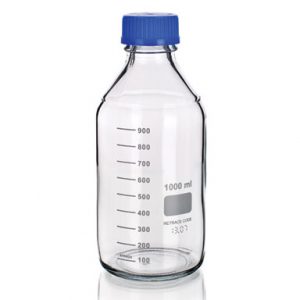 Glass Reagent Bottles
Glass Reagent Bottles
Glass reagent bottles are specially designed containers used to store chemicals, reagents, and other solutions. Their significance stems from the unique properties of glass, which make it an ideal material for handling a wide range of substances. Unlike plastic, glass is impermeable, meaning it does not allow gases or liquids to pass through it. This impermeability ensures that the contents of the bottles remain uncontaminated by external factors, preserving the integrity of the chemicals stored within.
Chemical Resistance
One of the primary reasons for the importance of glass reagent bottles is their chemical resistance. Glass is highly resistant to a vast array of chemicals, including acids, bases, and solvents. This resistance prevents reactions between the container and its contents. This could otherwise alter the chemical composition of the reagents and lead to inaccurate experimental results. For scientists, maintaining the purity of their chemicals is crucial, and glass bottles provide a reliable solution to this end.
Furthermore, glass reagent bottles offer excellent visibility. This allows scientists to easily monitor the contents without opening the container. This transparency is especially important in experiments where visual inspection is necessary to observe changes, such as color shifts or precipitate formation. The clear view provided by glass bottles aids in precise measurement and accurate documentation of experimental progress.
Durability and Reusability
Another advantage of glass reagent bottles is their durability and reusability. While glass may be fragile compared to some modern materials, with proper handling and care, these bottles can last for many years. This longevity makes them a cost-effective option for laboratories, reducing the need for frequent replacements and minimizing waste.
Safety Features in Laboratory Use
In addition to their practical benefits, glass reagent bottles also contribute to safety in the laboratory. Many chemicals are hazardous and require careful handling. Glass bottles are designed to withstand high temperatures and pressure changes, reducing the risk of breakage or leakage. Some bottles also come with specialized features like ground glass stoppers and screw caps, which provide an airtight seal and further enhance safety.

